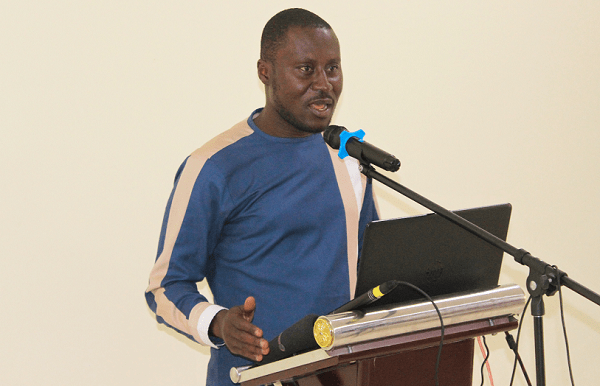SEND GHANA, a policy research & advocacy civil society organisation, has described government’s heavy reliance and continuous dependence on Development Partners (DPs) to fund its capital investments for some major ministries and sectors as risky.
The group noted that it has become apparent donor funds are gradually dwindling, hence over-reliance on them is counterproductive and could prove problematic in the near future.
“Our analysis of the national budgets 2019-2023 shows that government still relies heavily on Development Partners (DPs) to fund its capital investments for some major ministries. Investments in the provision of Water, Hygiene and Sanitation (WASH) services in the last four years have largely been donor-driven. In the 2019 budget for the Ministry of Sanitation and Water Resources, 70.26 percent of the projected allocation was sourced from DPs.
“In 2020, it increased to 82.39 percent. This trend continued in 2021 with projected funds from DPs, for purposes of capital expenditure, constituting 75 percent; while the GoG, Internally Generated Funds (IGF) and the Annual Budget Funding Amount (ABFA) collectively made up just about 25 percent.
“In the 2023 budget, a whopping 92.22 percent of the total allocation is expected to come from DPs; while government’s contribution reduced from 8.48 percent in 2022 to 1.8 percent in 2023,” it pointed out.
It further indicated that donor partners’ support also accounts for a large portion of the agriculture sector budget.
Again, while government should be commended for the significant increase of ABFA contribution witnessing a meteoric rise from 2.99 percent in 2022 to 51.48 percent in 2023, DPs contribution on the other hand increased to 40.50 percent in 2023 from 26.57 percent in 2022.
SEND GHANA believes the trend puts at risk government’s drive in pursuing agricultural modernisation and industrialisation, as donor support is “characteristically unpredictable”.
“With this trend, government will most likely miss its target to reducing grants by 10 percent to finance goods and services and CAPEX by 2023 as envisioned in the Ghana Beyond Aid strategy document. Government must therefore take concrete steps to reduce over-reliance on aid from donor partners,” it said.
The CSO explained that considering the global economic turbulence, government runs a risk of not mobilising the required funding from DPs – which will in turn affect actual releases to finance agriculture and WASH interventions for 2023.
Therefore, overreliance on dwindling and unpredictable donor support has serious consequences for implementing key interventions in the agriculture sector.
These were revealed in its assessment of a five-year trend analysis spanning 2019 to 2023 and covering five ministries: Health, Education, Agriculture, Sanitation and Water Resources as well as Gender, Children and Social Protection.
“We have identified a common theme of poor budget execution pertaining to ministries including Health, Education and Sanitation. Budget execution rates are an indication of the budget’s credibility,” it said.
“The Ministry of Sanitation and Water Resources (MSWR) has particularly and consistently experienced budget execution crises, as far as actual disbursements are concerned. The 2019 and 2020 performance reports of the ministry showed that only 6.32 percent and 18.9 percent of the approved budget were respectively released.
“For the past three years, the health ministry received more than two-thirds of its budget allocations for salaries and goods and services. The yawning gap in execution of the capex budget leaves much to be desired. This means that government could not honour its responsibility as planned, and compromised the provision of health care and infrastructure development during the COVID-19 pandemic peak and beyond.
“The annual budget performance report for 2021 revealed a disparity between allocation and actual disbursement to the education ministry. Out of an approved budget of GH¢15.64billion, the ministry received GH¢13.67billion (86.3 percent),” it indicated.
It said government must pay attention to these weaknesses, as they possess a threat to attaining the needed developmental outcome and achieving the Sustainable Development Goals (SDGs).










